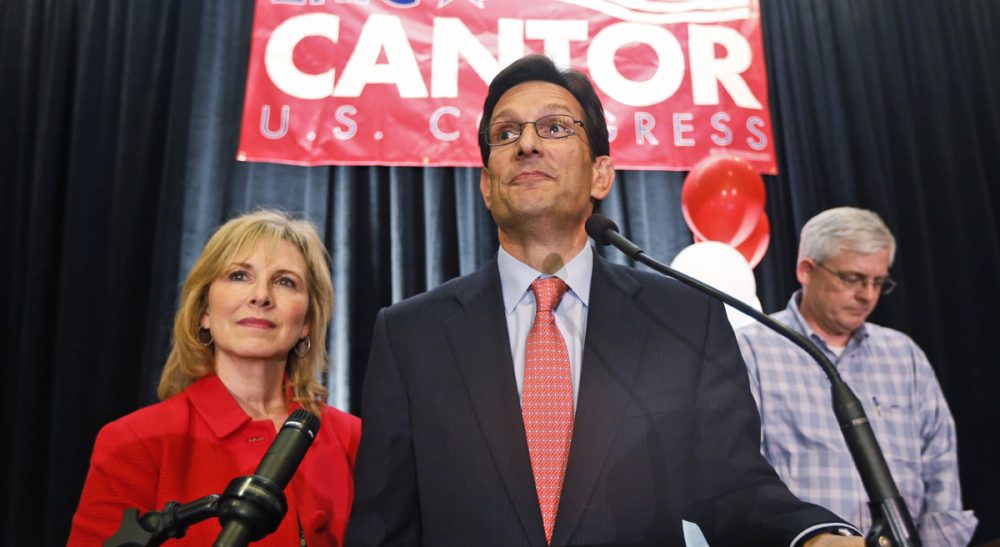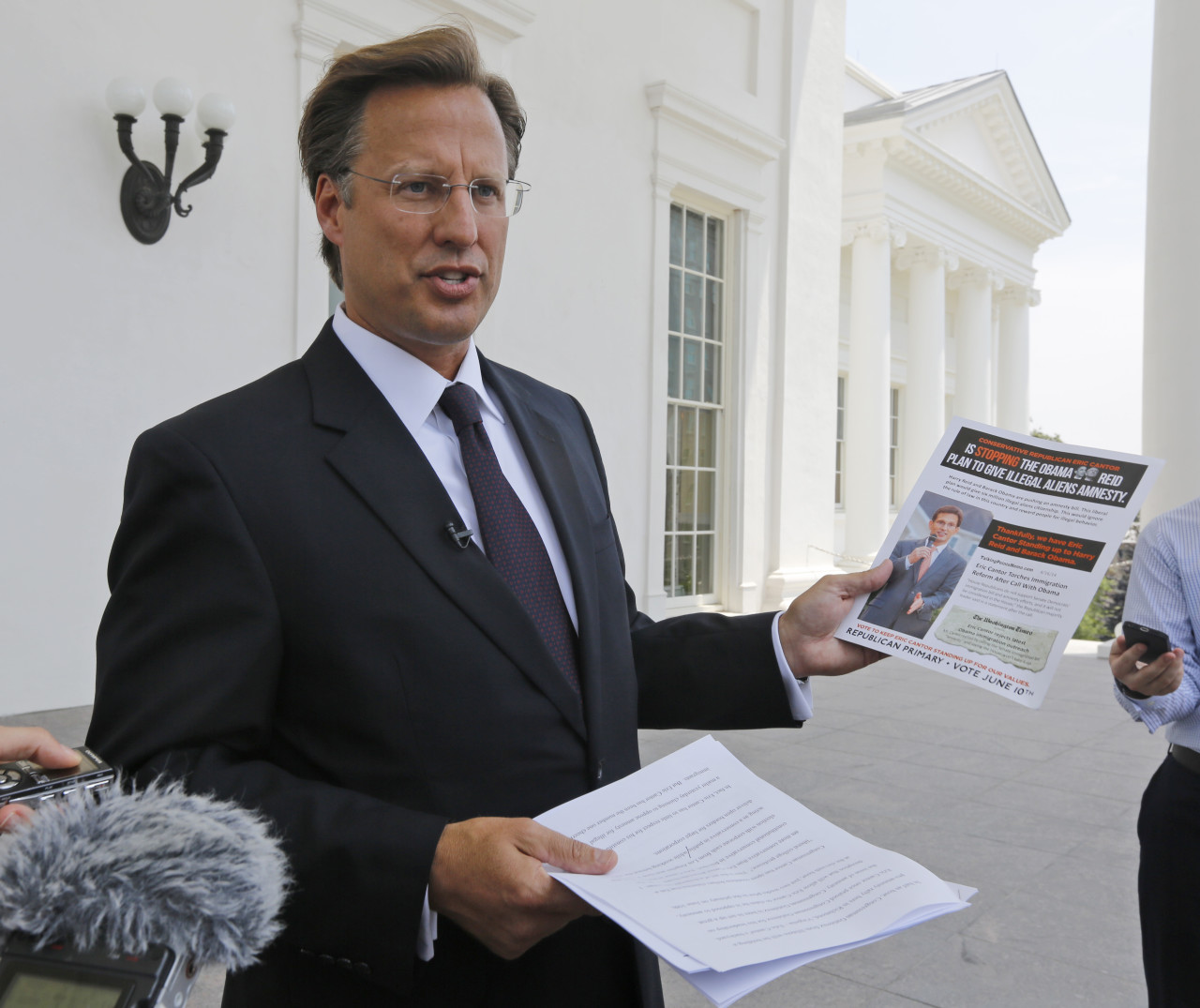Advertisement
Eric Cantor's Loss: A Perfect Storm Warning For GOP

Eric Cantor fell victim to a perfect storm in his Republican primary this week. Multiple factors produced the unprecedented double-digit loss. No one factor would have been sufficient.
Massachusetts experienced its own storm in 2010, when one issue — the Affordable Care Act — energized an electorate of conservative activists to forge historic results and propel Scott Brown to a short-lived tenure in the U.S. Senate. There was more than a shadow of that special election present in Virginia’s 7th district this week.
Part of the storm was of Cantor’s own making. In recent times, he did not heed Speaker Tip O’Neill’s ancient admonition that “all politics is local.”
Cantor was conflicted by his duties as majority leader, traveling the nation to raise money for Republican House candidates and often serving as point-person for negotiations with President Obama. This was of his own choosing, of course, since he craved becoming speaker himself one day and appeared well on his way.
Part of the storm was of Cantor’s own making. In recent times, he did not heed Speaker Tip O’Neill’s ancient admonition that 'all politics is local.'
As a consequence, though, back in the district Cantor became perceived as more D.C. than Richmond, sometimes ignoring the needs of his own constituents. Many Republicans also didn’t appreciate Cantor seeming squishy on their core issues while negotiating with the White House.
The conundrum left him vulnerable. Yet both he and his pricey yes-men and women pollsters and consultants remained oblivious in their Beltway bubble.
During the run-up to the primary, Cantor was a lightning rod for a couple of core issues that resonate strongly with conservative primary voters. His first policy problem emerged with his vote to lift the debt ceiling. The second and more formidable issue was immigration.
Rightly or wrongly, Cantor became the poster-boy for immigrant amnesty among conservatives. And in the days leading up to the primary, media coverage of the influx of thousands of undocumented immigrant children — unaccompanied by adults — coming across the southern border of the U.S. emerged as a major news story.
Cantor was seen by many in the GOP as the embodiment of a failed immigration policy and lack of control over U.S. borders since he was willing to promote a Republican compromise with Obama on immigration. Amnesty and border chaos are dirty words in Republican primary-voter circles. The timing for Cantor could not have been worse.

While his emerging weakness in his own district and the explosion of the immigration issue were prerequisites, the catalyst that triggered the political reaction was the personal interest that conservative AM-radio talk show hosts took in Cantor’s challenger, Dave Brat, as a way of getting to Cantor.
Brat had about 1/25th of the cash Cantor did, so he would not have gotten his message or name recognition very far without the megaphone of talk radio. Syndicated hosts, particularly Laura Ingraham, provided the equivalent of millions of dollars of free media to Brat.
For instance, it can’t get any better for a candidate running as a conservative populist against an incumbent who’s ‘gone Beltway’ than to have a rally, run by Ingraham, in front of the incumbent’s country club. But that’s exactly what Brat did one week before the election.
On primary day, roughly 63,000 votes were cast in the 7th district — up from about 47,000 in 2012 and more than doubling turnout in two other primaries held in Virginia the same day. In other words, the narrative that a low turnout allowed Tea Party activists to hijack Cantor’s race doesn’t comport with the facts. A lot of Republican voters made it to the polls on a rainy day to express their views that the U.S. is on the wrong path — and Cantor was the symbol of that path.
Although the hysteria over trying to draw some grand lesson from the defeat of the Majority Leader Goliath by the Tea Party David, or Dave as the case may be, should be tempered because of the ‘perfect storm’ of factors, many Republican House members will fear that other political mini-tsunami’s might be generated in their own districts if they’re not careful.
As a result, while the GOP House leadership may still try to cut a deal with President Obama on immigration, it is hard to fathom that rank-and-file Republicans will want to go anywhere near this issue. Politicians running for Congress aren’t necessarily known for their courage in the face of policy challenges that could imperil their membership in the House Gym — so, why would they start now?
The Republican tug-of-war, reflecting what happens to a party when it’s not in the White House and its future presidential ambitions don’t look too promising, will occasionally rear its head in public. It did earlier this week in unprecedented fashion.
Whether or not this outcome is the manifestation of an underlying trend remains to be seen. The uncertainty is nonetheless maddening to establishment Republicans, and will be a drag on any action by the House on immigration — or anything else — between now and November.
Related:
